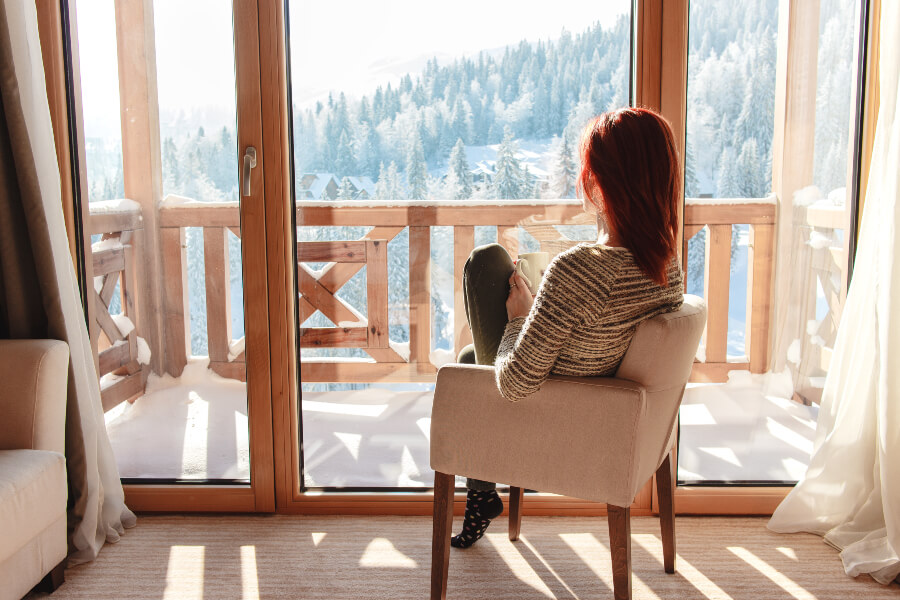My husband, Gordon, and I are compatible in many ways, but not in the bedroom. Our sex life isn’t the problem. It’s sleep. He falls into such a deep stupor that he once snoozed through an earthquake so strong it rattled pictures off the wall. Me? A dog’s sigh or a sliver of light is enough to jolt me awake, and, once roused, my brain mulishly resists re-immersion.
I’ve tried Benadryl, NyQuil, and prescription benzodiazepines. Each salvages a few nights, then stops working. Gordon is as sympathetic as someone who drifts off in the middle of a long afternoon conference call can possibly be. But his uncomplicated relationship with slumber actually makes me feel worse. I’m fit and healthy, yet at the not-old age of 54, my body is betraying me. I feel like a guy with erectile dysfunction. Why am I suddenly unable to perform this simple biological function?
I feel like a guy with erectile dysfunction. Why am I suddenly unable to perform this simple biological function?
It’s not just me. My midlife friends and I now swap sleep advice as enthusiastically as we used to trade diet tips. Among the 35 percent of adults who complain of midlife insomnia, women outnumber men two to one. “In perimenopause, hormones start shifting and life stresses are high—both of which can keep you up at night,” explains Joyce Walsleben, PhD, past director of New York University School of Medicine’s Sleep Disorders Center.
Why Is Midlife Insomnia Even a Thing?
Declining progesterone, a sleep promoter, is one factor, and the Dow Jones-esque spikes and plummets of estrogen are another—and are also the reason so many of us wake up sweating like we’re on the beach in the tropics. (Hot flashes and night sweats affect 75 percent of women ages 40 to 55 and 42 percent of those 60 to 65, according to a recent Australian study.)
As for stress, what woman hasn’t lain awake in the wee hours envisioning worst-case scenarios? “I wake up at 2 a.m. several nights a week, and my mind gets stuck in the darkest cul-de-sacs: What if one of our kids gets in a car accident? What if my consignment boutique fails? What if I’m diagnosed with cancer?” says my friend, Diane, whose sleep problems intensified after she turned 50 several years ago. “The only thing that helps me at that hour is reading something sweet and inspiring, like Tiny, Beautiful Things by Cheryl Strayed. If I can distract my worried brain I can usually fall back asleep.”
The general mechanics of aging is another reason women and men have trouble getting a peaceful eight hours of repose. In those over 60, the percentage of fitful sleepers jumps from 40 to 60—an insult-to-injury shift that doctors can only partly explain. “Deep sleep diminishes as people age, but we don’t know exactly why,” says Parham Dedhia, MD, a sleep medicine expert at Canyon Ranch in Tucson, Arizona. It’s not that we need less sleep, says Dedhia, but the “architecture of sleep, the usual progression from dreaming to light sleep to deep sleep and back again that characterizes “normal” sleep—starts to degrade, much as the cartilage in our knees starts to break down. What researchers do know: When you spend more time in the lighter stages of sleep, you’re more likely to wake up and less likely to feel refreshed in the morning.
My midlife friends and I now swap sleep advice as enthusiastically as we used to trade diet tips.
I know what you’re thinking: Great. I’m doomed to 30 to 40 more years of sleep deprivation. Stop right there. First, science is clear on the fact that negative thoughts about sleep (like, “I’ll never get to sleep. I’m going to be completely wiped out tomorrow morning”) can actually contribute to insomnia. Second, there are things you can do to fight the physical changes that undermine slumber.
The First-Line Treatment for Midlife Insomnia
Exercise, for instance, increases your body’s level of adenosine, a chemical that naturally builds throughout the day and helps you not only doze off but also fosters deep, restorative, less-likely-to-be-disturbed sleep. Hormone replacement therapy can balance out the estrogen and progesterone deficits. (The estradiol patch I wear on my abdomen hasn’t cured my problem, but it has minimized my night sweats.)
I learned that the stories we tell ourselves about sleep are at least as powerful as the age-related physical changes that undermine sleep.
Even women who’ve struggled with insomnia for years can find relief. Take my 69-year-old friend, Barbara. After 30 years of taking sleep medication off and on, she was convinced her body lacked the capacity to get a decent night’s rest. Then she tried cognitive behavior therapy for insomnia (CBTI), which is so effective that the National Institutes of Health now recommends it as a first-line treatment.
You can find on-line CBTI programs, such as SHUTi, which is a highly respected technique “designed to actively help retrain your body and mind for great sleep.” Or you can see an expert who specializes in the approach, which helps you identify and replace thoughts and behaviors that keep you up at night with habits that foster sleep. “I learned that the stories we tell ourselves about sleep are at least as powerful as the age-related physical changes that undermine sleep,” she says. “I now believe that my body has the innate ability to get the sleep it needs, and that a fitful night or two won’t kill me. For me, the expectation that I will sleep has made all the difference.”
Getting to Z-z-z-z-z
My own quest for rest has led me to more material solutions. We swapped out our queen-size bed for a king platform, and, because Gordon is a twitchy sleeper, invested in a mattress with the best motion control I could find in our price range. To dull my vigilant senses, I wear an eye mask and earplugs and turn on a white noise machine that sounds like a fan. When I wake up and start worrying, I try to shift my thoughts to the current TV show we’re binge-watching. Thinking about the travails of Tyrion Lannister or Walter White is often enough to loosen anxiety’s sticky grip and allow me to drift off. A couple of friends tell me that trying to reconstruct a dream they’ve just had helps lull them back to sleep.
Thinking about the travails of Tyrion Lannister or Walter White is often enough to loosen anxiety’s sticky grip and allow me to drift off.
If I continue to toss and turn, I get out of bed and read something dense, like Moby Dick; the more boring, the sleepier I feel. I no longer click on Facebook (our gadgets emit blue light, according to Dr. Dedhia, which triggers the brain to wake up), or stress about being wiped out the next day.
After all, research shows that, prior to the invention of the lightbulb, it was natural for early humans to wake up for a stretch in the wee hours. According to Roger Ekirch, a historian at Virginia Tech who wrote a book about middle-of-the-night wakefulness, people customarily used this window to do chores, raid a neighbor’s apple orchard, pray, or have sex. From that perspective, my body is doing what it was meant to do after all. It’s Gordon and his comatose eight hours who’s messed up.






















0 Comments